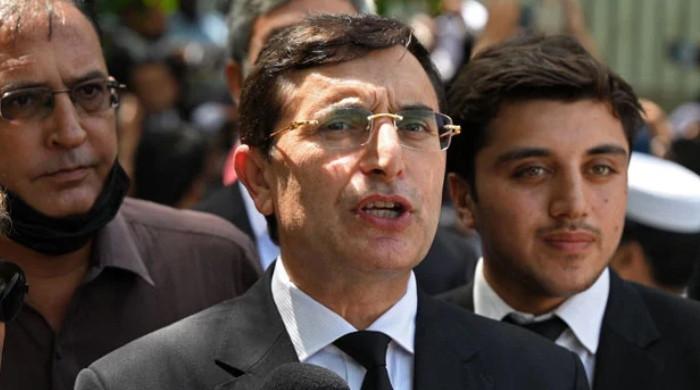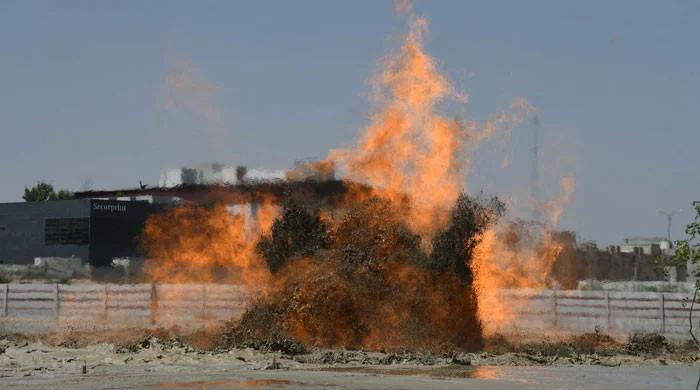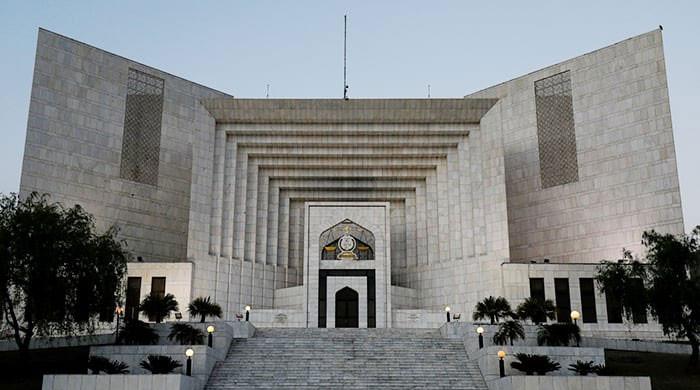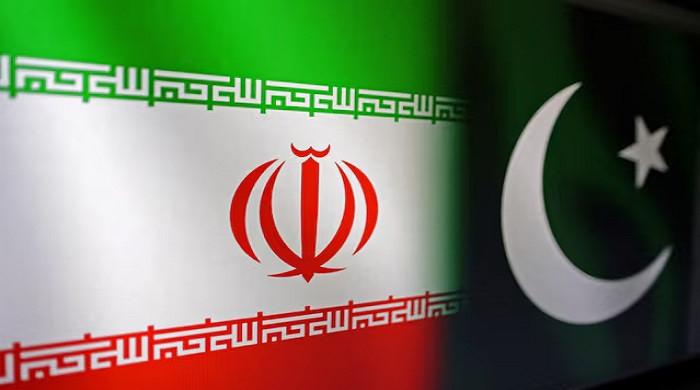A tribute to Benazir Bhutto
"Our suffering and pain has been enormous. One day the season will change and the tide will turn and Insha Allah, it will be soon," were Benazir Bhutto’s words on her 50the birthday in 2003. It...
June 21, 2016
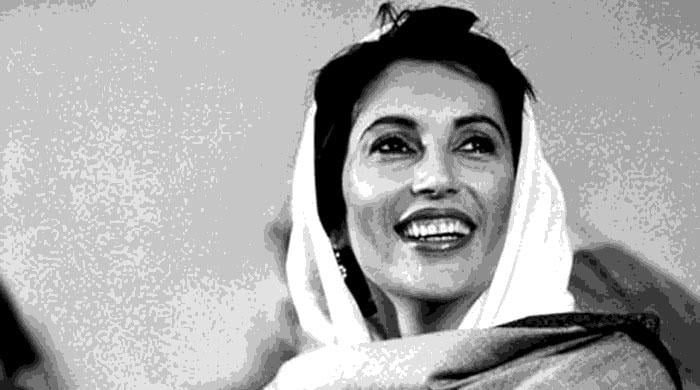
"Our suffering and pain has been enormous. One day the season will change and the tide will turn and Insha Allah, it will be soon," were Benazir Bhutto’s words on her 50the birthday in 2003. It took almost five years for season to change and the tide to turn but Bibi had to give her blood for it. She knew hounds were after her and "something terrible was waiting for her"—and yet she returned to Pakistan.
"My people are waiting for me to free them from dictatorship”. “You could still lead them from London or Dubai”. Her response was a firm ‘NO’. “They will feel let down,” and then she added: “Come, come Wajid Bhai, don’t you think it is better to die for the cause for which you have lived and struggled all your life rather than be run over by a double-decker crossing the road”. Indeed, like father like daughter.
Until then and 2007 President General Pervez Musharraf had absolute power backed to the hilt by his foreign masters. He saw in her return to Pakistan an end to his rule and return of democracy. As such he was determined not to let her come back. He would not—at any cost-let her participate in elections whenever held. Obviously he knew the moment she would announce her return home—it would usher in dynamics of change and sound a death knell to his dictatorship.
Bhutto’s was a non-negotiable commitment with the people –to return to Pakistan, to fight to her last—to uproot dictatorship to usher in democracy and to scotch the hydra-headed monster that was a threat to Pakistan’s existence. This monster was growing terrorism, sectarianism and bigotry. Long dictatorial rules one after the other, had inflicted enormous domestic problems on Pakistan and its people. She was also conscious of multifaceted external issues –that were sure to have serious consequences for Pakistan and rest of the world too as are being now manifested in its regional and global ramifications.
She had believed that democracy was never really given a chance to grow or nurture by the powerful establishment that had directly ruled the country for over 30 years and for rest of the time pulled the strings from behind the façade of democracy to make the government of the day dance to martial music. Indeed, Pakistan continues to reap the bitter harvest until today of the seeds sown by General Ziaul Haq and General Pervez Musharraf.
The results of long suppression of democracy have had profound institutional consequences. Parliament is there but a non-serious government has made it almost dysfunctional. The present government instead of further consolidating a vendetta-free democratic culture of tolerance left as a legacy by the previous Zardari government has been creating an atmosphere justifiable for extra-constitutional intervention. It was the parliament that protected Prime Minister Nawaz Sharif when his chips were absolutely down during the Dharnas of 2014.
I had forecast that the battle of ToRs over Panama Gate scandal would end in an exercise in futility. It seems imminent that the matter would go to the street and it would -advertently or inadvertently—prove to be fatal for the system or gravely undermine it. Political parties and their leaders are already demonised. Most deplorable is the case of Dr Asim Hussain who is being apparently made to sing. May be a time would come when he would be forced to claim that he robbed Somnath’s temple.
Analysts believe that all the happenings in and around would make a happier occasion than October 12, 1999 when people had distributed good riddance sweets. The ongoing politicking by unidentified spooks for undermining the political parties, creation of splinter groups—are from the book of standard procedures for change in civilian government readily available with the Establishment.
Gen Pervez Musharraf (GPM) sought to strengthen himself on the crutches of religious parties and by running with the American hares and hunting with the Taliban hounds. It was perseverance of Bhutto and her sacrifice in blood that made elections inevitable early 2008 that paved the way for democratic change and GPM’s ignominious exit.
Unfortunately democracy has remained on roller coaster mould and it has not happened the way she had wished for. The establishment played wily games as usual from behind the scene as manifested in Memogate conspiracy.
The decision by ex-President Zardari to sustain Benazir Bhutto’s vision in Charter of Democracy as a panacea to political ills and his historic decision to further empower the provinces through 18th Amendment-- have weakened the overbearing existence of the Centre and the powerful establishment. Despite the fact that machinations are on to strike back at 18th Amendment by both Takhte Lahore and the Establishment—emergence of yet another centre of power is indeed landmark achievement in consolidating the federal structure with maximum autonomy to the provinces.
While poor people in the country wish Bhutto were alive today to solve their multifaceted problems inflicting their lives—be it high prices, perpetual load shedding, deterioration in law-and-order, galloping unemployment—the most to long for her are women, children and minorities. Overly abused women and oppressed minorities—would have found her standing with them against male chauvinism and oppressive bigotry of the religious extremists who continue to bask under the overt and covert patronage of the government and the establishment.
As a tribute to her on the occasion of her birth anniversary, PPP leadership must get down to stock taking of its pluses and minuses. It must realise that the odds it faces today are extremely onerous. With Benazir Bhutto not around, to surmount them would be challenging. It would require extra ordinary effort and rare qualities of leadership. It must understand that the present government and the Establishment--though sleeping in different beds—have the same dream—to decimate PPP further as a political force.
Chairman PPP Bilawal Bhutto and PPPP President Asif Zardari must have a common strategy to address immediately problems of the abused women, children and minorities. The number of women burnt to death recently in Punjab is alarming, sexual abuse of children, rape of girls and victimisation of minorities—are multiplying. And the irony of horrid scenario is that neither the Punjab government is bothered nor is the Federal Interior Minister—remotely concerned.
It was a cherished dream of Benazir Bhutto to revert Pakistan to its founder Quaid-i-Azam Mohamed Ali Jinnah’s vision of a secular, liberal and progressive country and to Shaheed Zulfikar Ali Bhutto’s egalitarian society. Being a young man Bilawal would do well in returning PPP to its original left-of-the-centre ideological moorings. Success at that would be the best tribute to the memories of the departed leaders.
—The author is a former High Commissioner of Pakistan to the UK




